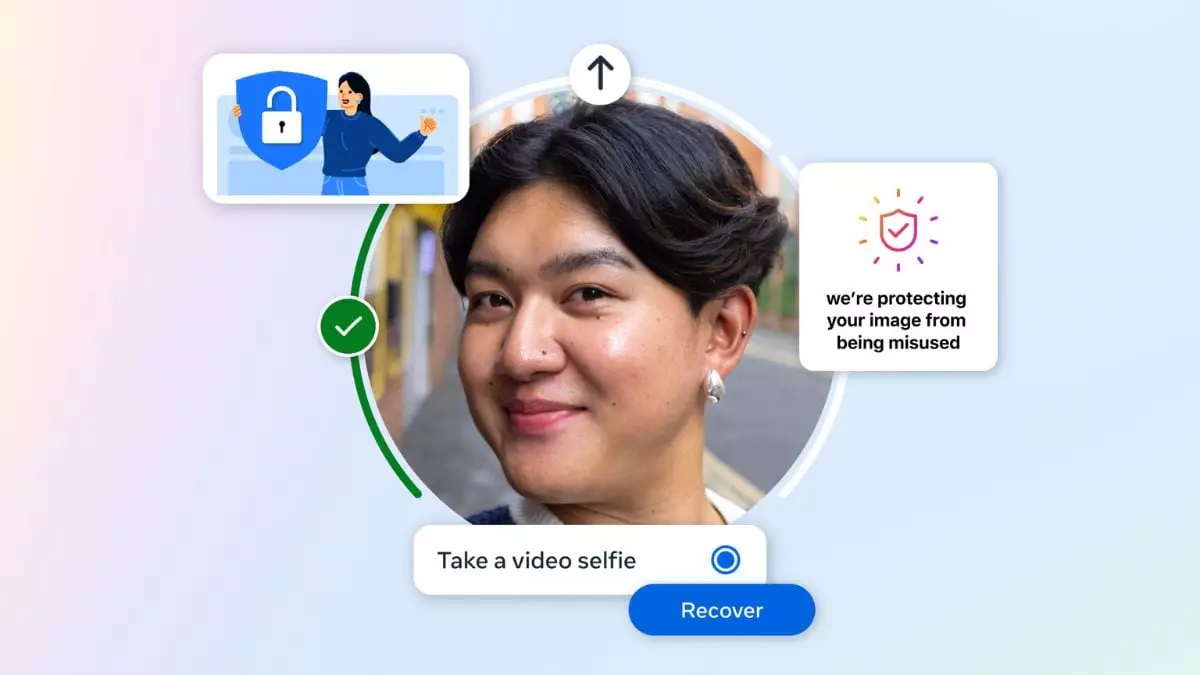In an effort to bolster user security and mitigate fraudulent activity on its platforms, Meta has recently unveiled its latest initiative involving facial recognition technology. Announced on a Monday, the social media conglomerate is focusing on two primary applications: tackling “celeb-bait” advertisement scams and expediting the process for users to recover compromised accounts. By leveraging advanced technology, Meta aims to create a safer online environment—an objective that is increasingly critical in an era rife with digital deception.
The phenomenon of “celeb-bait” scams has emerged as a significant concern within digital advertising. Scammers frequently exploit images of well-known celebrities and public figures to entice users into engaging with false advertisements. Typically, these deceptive ads prompt users to click on links that may lead to phishing sites or harmful software. Meta has recognized this alarming trend and is deploying facial recognition not only to detect these illicit claims but also to enhance existing automated systems that aim to differentiate genuine ads from fraudulent ones.
Using a machine learning-based ad review system that processes millions of advertisements across its platforms, Meta is branching out into facial recognition as an additional strategy. Currently in its nascent phase, the initiative utilizes a limited array of celebrity images, comparing them with the profiles of those public figures. If an ad is flagged as potentially fraudulent and a match is found, it can be immediately blocked, thereby fortifying the company’s defenses against harmful content. Moreover, this technology also serves to identify and shut down accounts impersonating celebrities, addressing another facet of this digital dilemma.
Besides combating scam ads, Meta is testing facial recognition technology as a tool for quicker account recovery. Users often find themselves locked out of their accounts due to suspicious activity identified by automated systems or forgotten passwords. Previously, regaining access necessitated tedious verification processes, typically requiring users to present a government-issued identification. The introduction of video selfies aims to streamline this ordeal significantly.
By allowing users to upload a video selfie, Meta can utilize facial recognition tech to validate identities against profile pictures. This method not only expedites access to locked accounts but also augments user convenience—all while continuing to respect privacy policies by ensuring that no facial data is retained post-verification.
While Meta’s endeavors in utilizing facial recognition technology present promises of greater safety and user efficiency, they also emerge amid heightened scrutiny concerning privacy and ethical standards. Past controversies have raised valid apprehensions regarding the potential misuse of facial recognition data. However, Meta has sought to alleviate these concerns by pledging not to store the biometric data generated during the comparison process. This commitment, if adhered to, could signify a noteworthy step toward addressing privacy concerns while still leveraging technology to enhance user experience.
As Meta moves forward, the initial phase of testing will involve a small selection of celebrities and influencers to refine the accuracy and promptness of the detection processes. In response to user feedback, Meta has stated that their algorithm will evolve, with in-app notifications set to inform those affected by the “celeb-bait” ad scams. This proactive approach emphasizes the company’s intention to foster a transparent relationship with its users, particularly public figures who may be affected by these harmful scams.
Meta’s exploration of facial recognition technology as a dual mechanism for controlling fraudulent advertisements and facilitating easier account recovery marks a pivotal stride forward in online security. Though challenges remain, the potential benefits of enhanced user experiences and a significantly safer online environment cannot be overstated. As this initiative unfolds, it will be vital for Meta to navigate the complex interplay between technology and user privacy, set a standard for ethical practices, and ultimately cultivate trust among users.


Leave a Reply